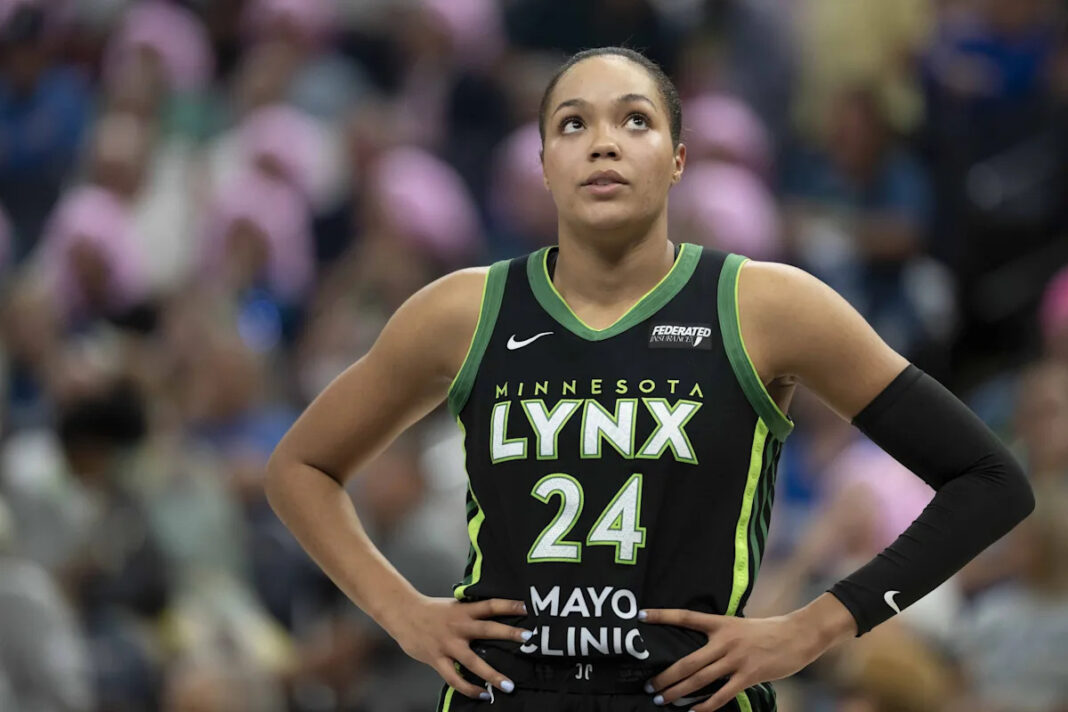Diving into Napheesa Collier’s Bold Critique of WNBA Leadership
In the wake of the Minnesota Lynx’s playoff elimination at the hands of the Phoenix Mercury, forward Napheesa Collier has courageously taken a stand against WNBA Commissioner Cathy Engelbert, labeling her leadership as “tone-deaf and dismissive.” This outspoken move comes after a season riddled with frustrations, both on and off the court, and signals a significant moment of introspection within the league.
The Catalyst: A Playoff Loss
The Lynx’s playoff journey ended with a narrow 86-81 loss to the Mercury during the semifinals. This defeat proved to be more than just another game; it sparked a wave of emotion within Collier, leading her to express her grievances firmly. “I just got to the point where I was fed up,” she stated, emphasizing that the decision to speak up was about more than personal risk; it was about what the WNBA represents for its players.
A Conversation with Kamala Harris
Collier’s sentiments were shared during a discussion with former Vice President Kamala Harris at “A Day of Unreasonable Conversation,” a summit focused on activism and change-making. This high-profile exchange added a layer of gravity to her concerns, framing them as part of a broader discussion about accountability in leadership.
A Behind-the-Scenes Perspective
On the union for Collective Bargaining Agreement (CBA) negotiations, Collier saw firsthand the internal struggles and frustrations that players experience. She articulated that despite various discussions aimed at improving league conditions, little progress was evident. “We tried to have these conversations and move the needle,” she explained, indicating a sense of helplessness in effecting real change.
Leadership Under Fire
In her scathing statement following the playoff exit, Collier remarked that the real threat to the league extends beyond financial struggles or ratings. Instead, she pinpointed “the lack of accountability from the league office” as a critical issue. This assertion underscores a deeper systemic problem that she believes is holding back not only player development but also the league’s overall credibility.
Personal Sacrifice for a Greater Cause
Despite sustaining a significant ankle injury—evident as she appeared in a boot during press interactions—Collier demonstrated remarkable resilience. Her emotional plea for change came at a time when many were voicing similar frustrations, including coaches and players alike. “Whether I was going to get annihilated for this or people were going to support me, I felt what I was doing was right,” stated Collier, emphasizing the necessity of her actions despite the potential fallout.
Addressing WNBA Officiating and Player Compensation
Collier did not hold back on specific issues, referencing a conversation with Engelbert regarding WNBA officiating and player compensation. She pointed out disparities that seem to exist, particularly for high-profile players generating significant revenue. Citing remarks made by Engelbert about players needing to be “on their knees thanking their lucky stars,” Collier encapsulated the sentiment that many players feel: a lack of appreciation from league leadership for their contributions.
Engelbert Responds
In the wake of Collier’s remarks, Engelbert expressed disappointment over how their dialogue was characterized. She labeled some of Collier’s statements as inaccurate and indicated a willingness to rectify the situation through direct communication. However, this proposed meeting was reportedly called off by Collier, potentially signaling a deeper rift in trust between players and management.
A Reflective Moment in WNBA History
Collier’s actions and words have sparked conversations that will resonate throughout the league. They highlight the ongoing struggle for equity and accountability in professional women’s sports and pose critical questions about how leagues can better support their athletes. Whether this moment will be a turning point for the WNBA remains to be seen, but it undeniably underscores the power of athlete advocacy in confronting systemic issues.



